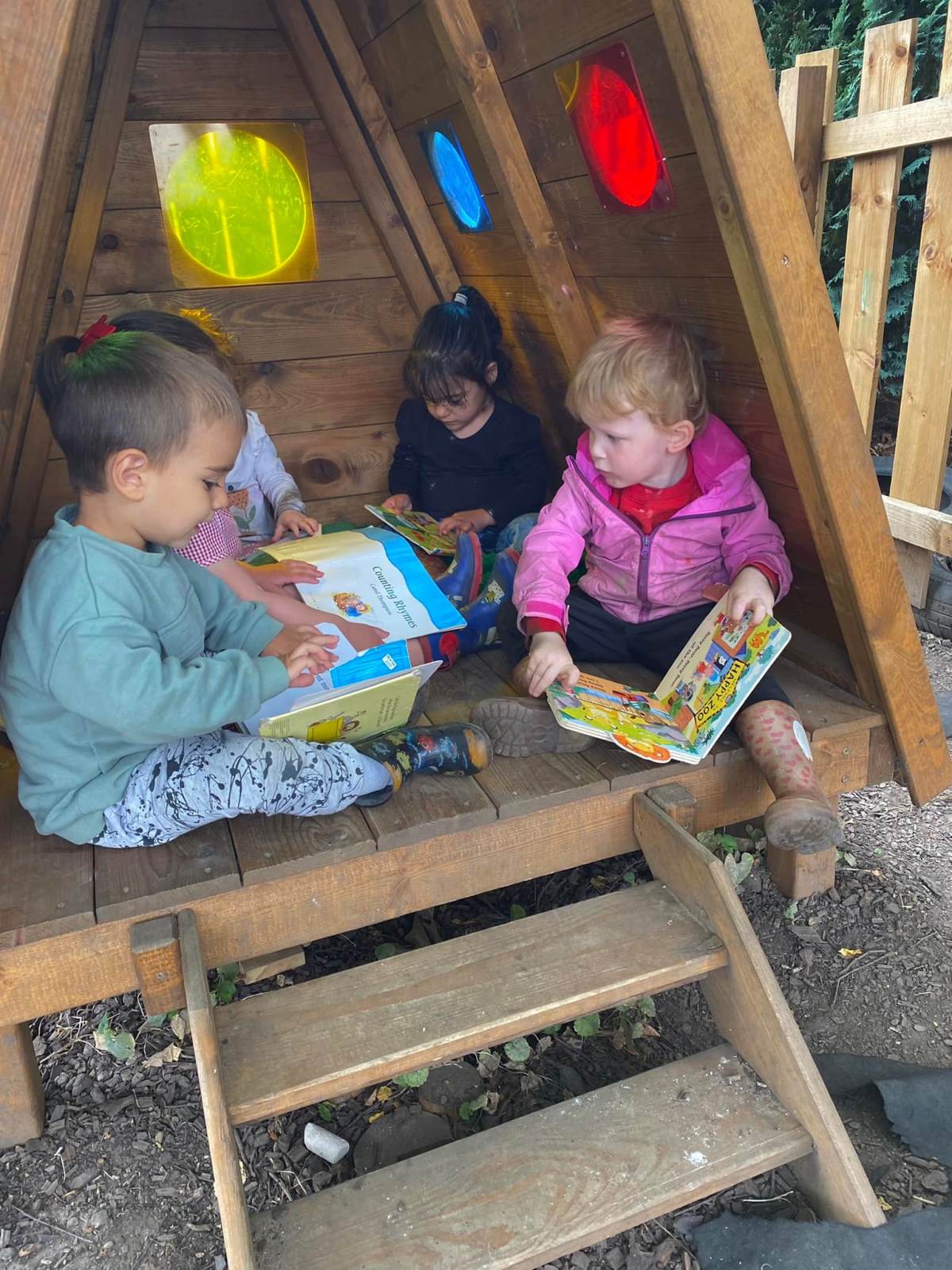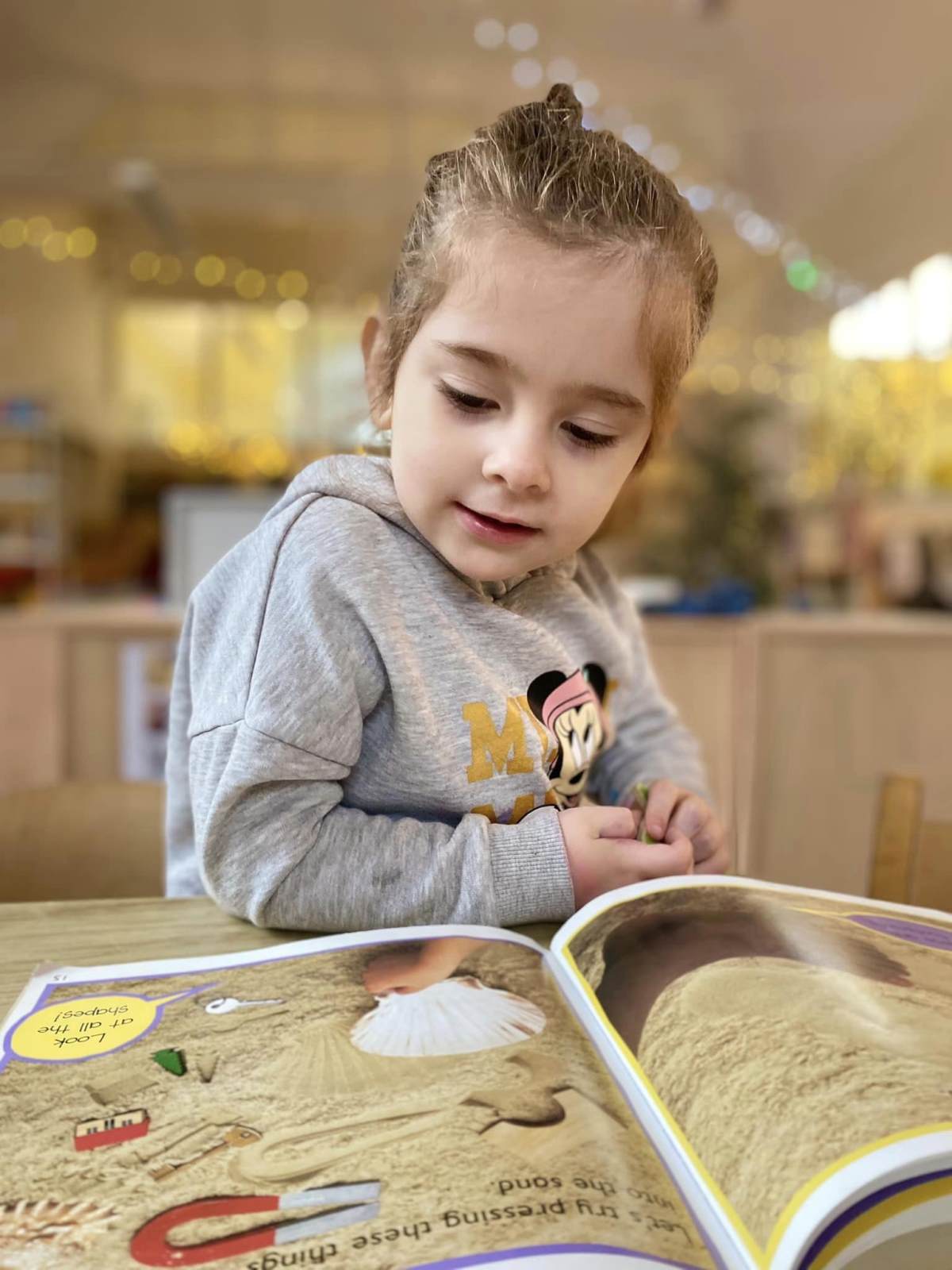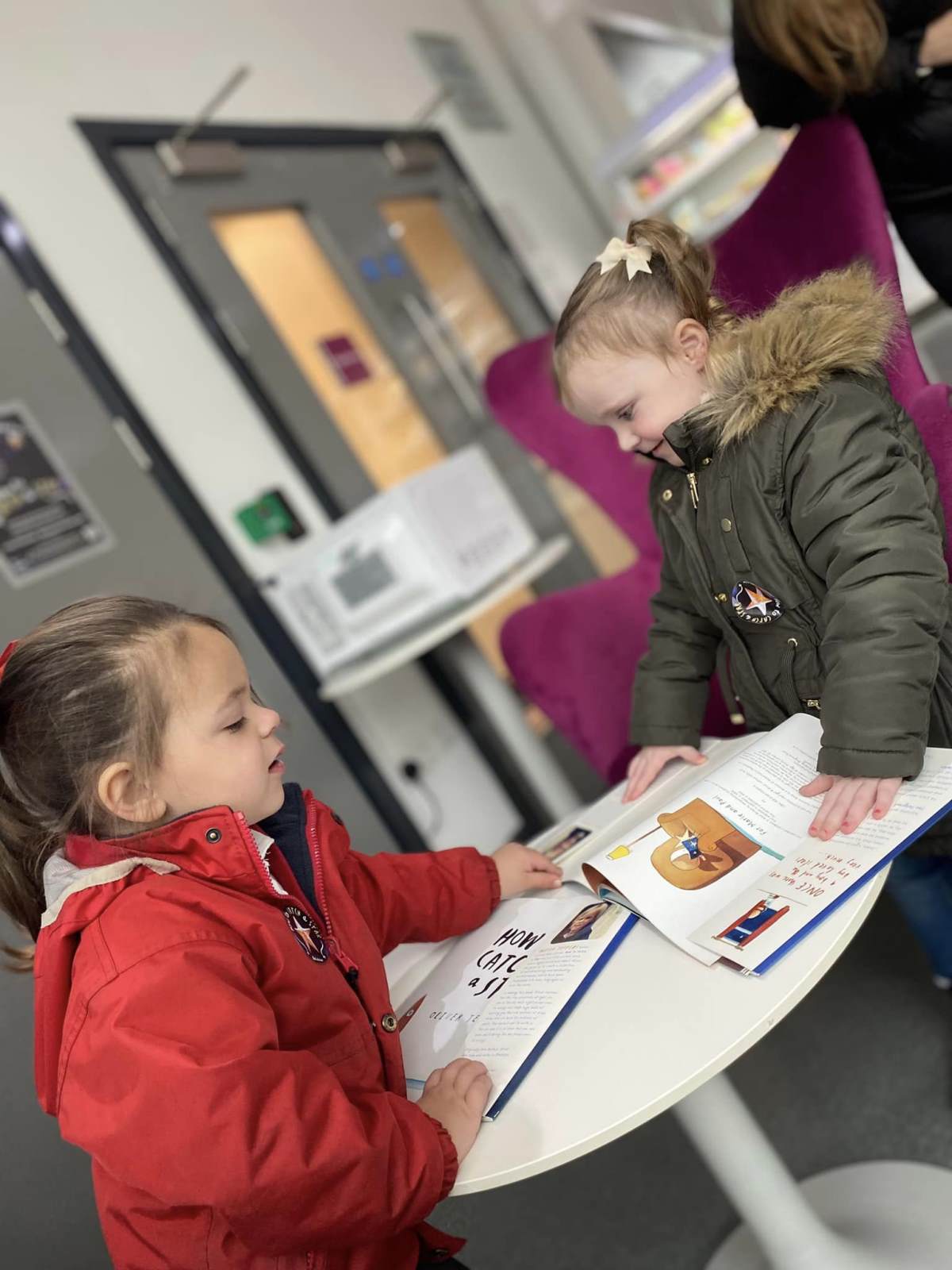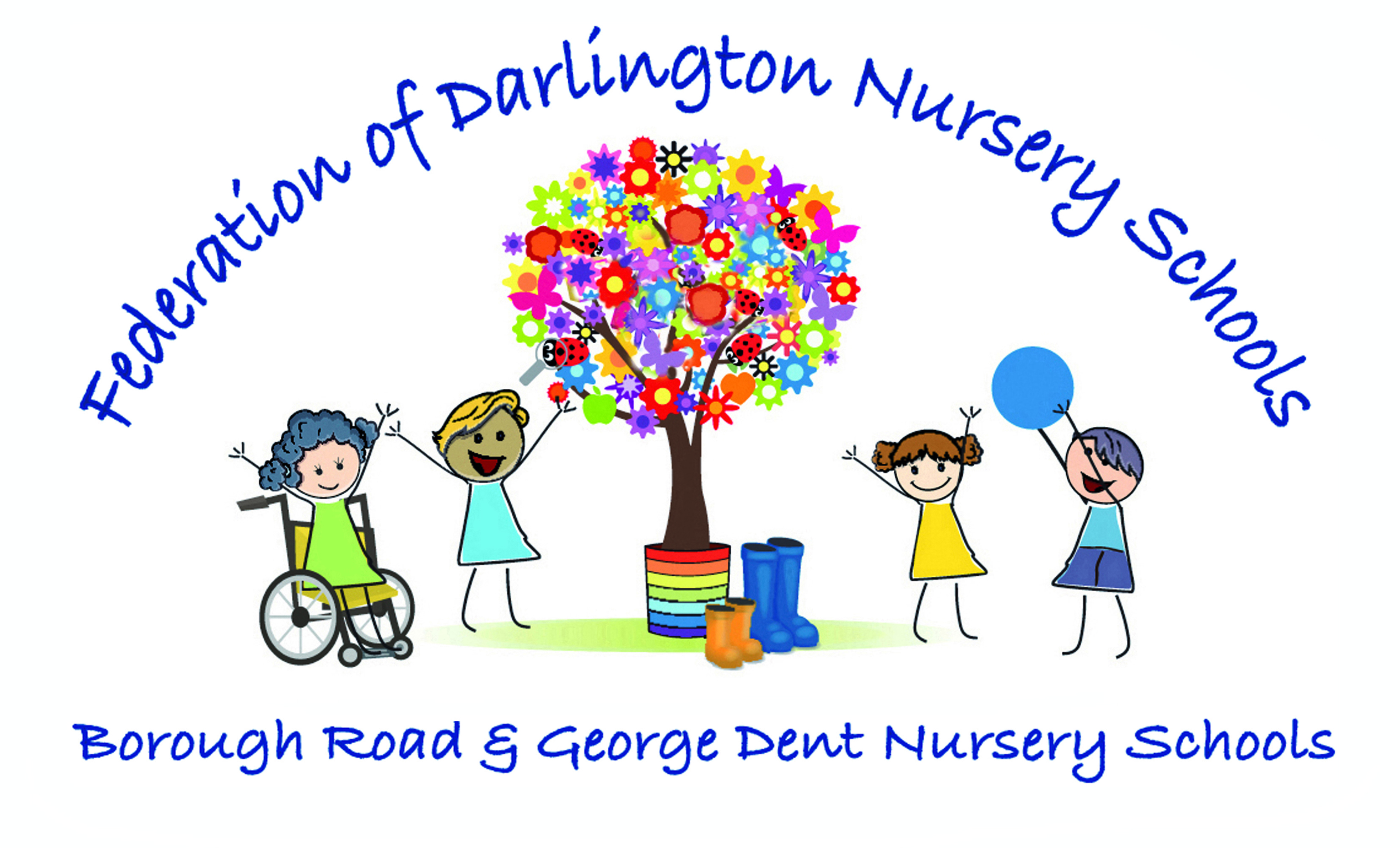Phonics and Reading
Children start to learn language from the day they are born. As they grow and develop through play and secure attachments, their speech and language skills become increasingly more sophisticated.

We know that from the moment of birth, children begin the process of reading their surroundings and learning the intricacies of language. Babies and young children will notice parents expressions and tune into the sounds they make, as well as acquiring information and developing understanding from environmental stimuli. These positive attachments with parents, wider family, peers and educators help to strengthen young children’s communication skills.
Phonics
Early phonics happens everywhere, all of the time. It is not a discreet subject that we set out to teach through a rigid set of principles. Our educators are adept at noticing the child's awareness of sounds in the environment, their ability to copy sounds, their interest in the written word, the language they use to describe sounds; or their own emergent writing, their awareness of alliteration and rhyme, their ability to blend and segment orally, their ability to recognise and write letters and their ability to read words and sentences.
Building good listening and attention skills are essential and we do this through the creation of communication friendly spaces; through the organisation of our school day; through modelling being a good listener during play; and through spending time making music and singing lots of songs and rhymes.

Developing a love of reading and writing
We aim to instill; a love of language so that children develop good communication skills for life; a love of reading so that children enjoy reading and choose to read for pleasure; and a love of mark making so children take pleasure from the physical activity of mark making until they develop and realise they can control their marks with purpose to communicate meaning.
Each room has a book area, where books are displayed attractively and where browsing, choosing and reading can take place. Through these areas we aim to establish and promote a positive ethos for reading for pleasure. We ensure the books available cover a range of genres and they reflect and celebrate, through their narratives and illustrations, the rich diversity of our children, families and communities, irrespective of race, gender, disability, belief, religion or socioeconomic background.
In addition, books are shared, shown and displayed across the learning environment, inside and outside, and in spaces throughout the school. Educators read frequently and regularly each school day planning for talking about books and stories and providing structures within which to do so.
We believe children learn best when they are fully immersed in play and they have a skilled educator to support them with the appropriate interaction and challenge.

